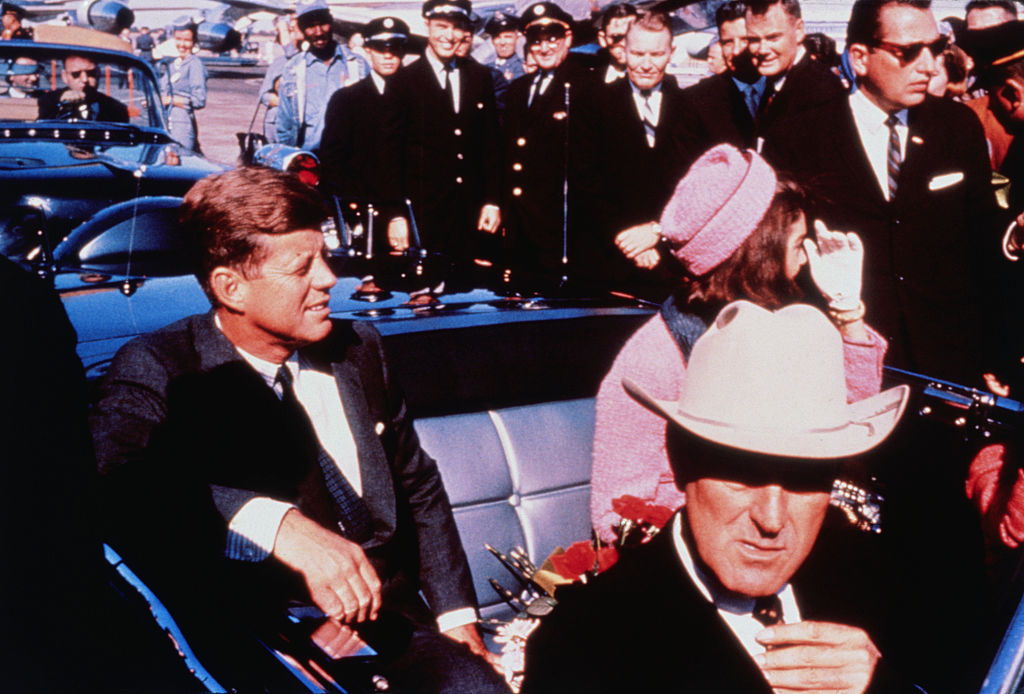Neil Simon's storied career
With his trusty typewriter and stacks of handwritten notes, Neil Simon has produced some 30 plays and just as many screenplays. He eschews computers because he says he doesn't know how to use them.
Even without technology, Simon has created some classic moments in American comedy. Who could forget his bickering "Odd Couple," with Jack Lemmon as Felix and Walter Matthau as Oscar? It's plays and movies like that one that earlier this month earned him one of the nation's top comedy awards: The Kennedy Center Mark Twain Prize for Humor.
Old friends like Robert Redford came to pay tribute.
"I think because he can so target the heart using humor, he can target the heart of issues and concerns we all have," Redford told Sunday Morning correspondent Rita Braver.
Redford got his first big break playing Jane Fonda's buttoned-down husband who finally lets loose in Simon's "Barefoot in the Park."
Although he is known for all his memorable comedic moments, Simon said he was very shy as a child.
"I was the quietest person," he said. "I didn't know I could talk till I was 31. So I don't know where it all came from."
Simon, whose full name is Marvin Neil Simon, was born in 1927 and grew up in the Bronx. He never liked the name Marvin and his brother Danny called him "Doc," a nickname that stuck for years. It was a difficult childhood, and their father frequently left the family. The two brothers were on their own a lot. Simon said humor helped get him through the difficult times.
"Well, it explained things to me anyway," he said. "It made it easier to deal with if you were able to laugh at it."
Over the years Simon often used his own experiences for comic material. His stint in the Air Force, for example, lead to "Biloxi Blues" with Matthew Broderick as the Jewish soldier who tells Christopher Walken he's on a religious fast and can't eat the grub.
In real life, after a stint writing for the Air Force Newspaper, Simon joined his brother Danny writing gags for TV, especially Sid Caesar's "Your Show of Shows."
"And then I'm working with Max Liebman and Sid Caesar and Mel Brooks and Larry Gelbart, all the best comedy writers in America, and I said, 'How did I fall into this?'" he said. "And I learned a lot. And by the time — three or four years — when I got out, I felt I was ready to write a play. It wasn't courage. It was stupidity. You just have to be, you know, dumb and say just do it; maybe it'll work out."
The play was "Come Blow Your Horn," later made into a film starring Frank Sinatra as a swinging bachelor.
"Well, it doesn't feel like anything because you don't know what to feel," Simon said. "You had to really move on and do something better than that, and then, so you did."
Simon began writing play after play, and even tried his hand at musicals like "Sweet Charity."
He was the toast of Broadway and at one point had four plays running at the same time.
He made the covers of Time and Newsweek. His life was perfect until his wife Joan, with whom he had two daughters, died in 1973 from cancer. They had been married for 19 years.
"It was the hardest thing I think in my life," he said.
Simon's solution was to throw himself into his work, which was good news for actors like Richard Dreyfuss.
"He knew that I could do things that I didn't know I could do," Dreyfuss said. "It was the greatest writer in America listening to what I specifically do and it's the most important moment I've ever had."
The moment was "The Goodbye Girl." Dreyfus won an Academy Award playing a struggling actor forced into sharing a tiny apartment with Marsha Mason.
Mason was not just any actress; she was Neil Simon's second wife. He was also married to actress Diane Lander and now, for the past seven years, to another actress, Elaine Joyce. He says he fell for her on their first date.
"She opened up the door, and I go, 'Yep, that's it,'" he said.
"Well, it was it and luckily it was mutual ... well, it's good," Joyce said.
At 79, Simon is still writing and is in good health after a 2004 kidney transplant. Simon has had a lot of good days in his life. This month's Mark Twain Prize is just the latest in a series of awards. He received Kennedy Center Honors, the Comedy Award, three Tonys, a slew of Academy Award and Emmy Nominations, and the Pulitzer Prize for "Lost in Yonkers," one of his more serious plays about a family dominated by a dictatorial grandmother.
What resonates in all of Simon's work, serious or comic, is its universality:
"Many times I would go to the theatre and stand in the back and people would come up and they say, 'How do you know my father?' 'How do you know my cousin?'" he said. "I seem to have touched that aspect of their lives that's familiar with them as familiar with me ... making a connection with millions of people is pretty good."



